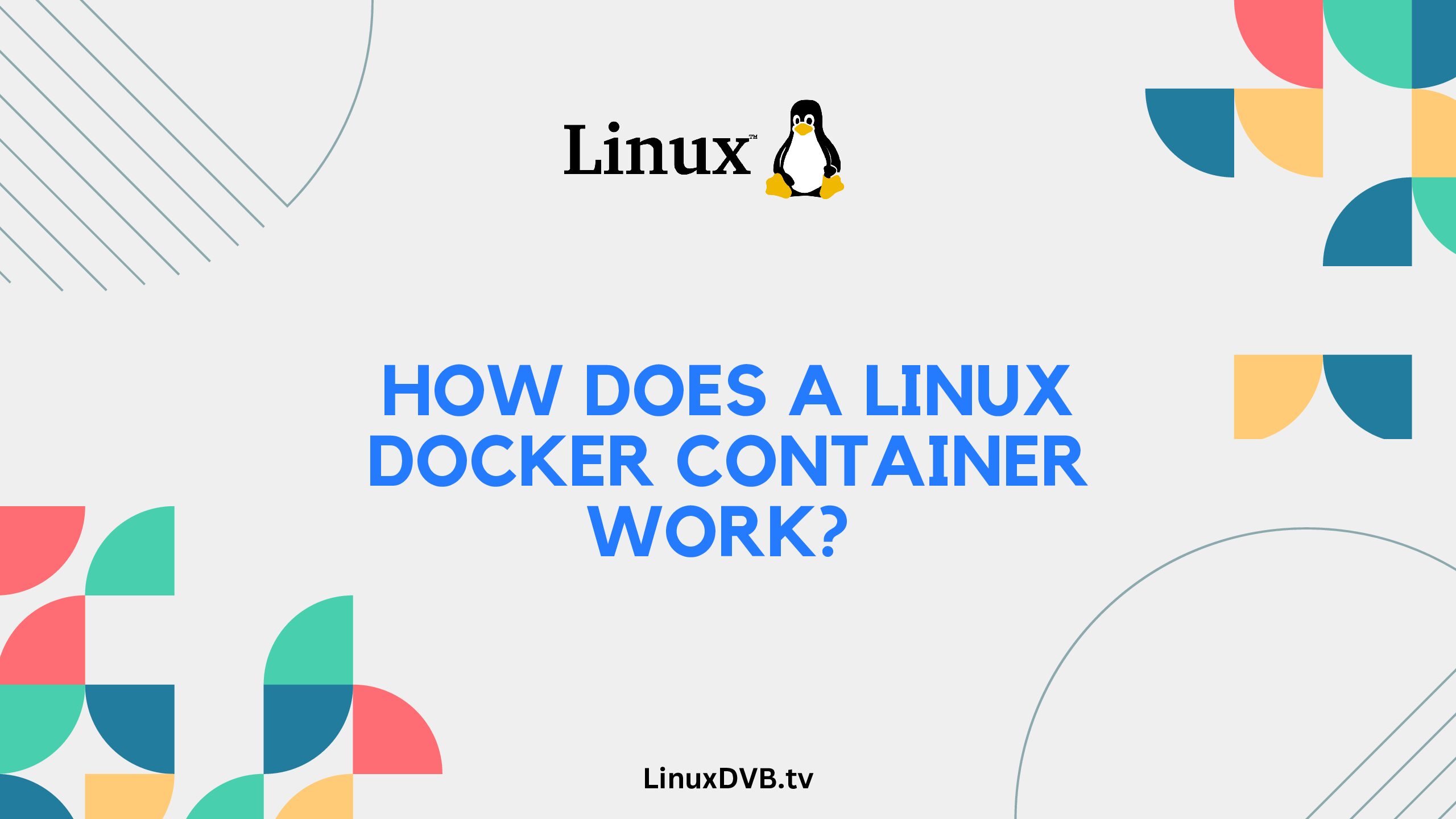Introduction
In the ever-evolving landscape of software development, containerization has emerged as a game-changer. Docker, a popular containerization platform, has revolutionized how applications are developed, deployed, and managed. In this article, we will dive deep into the inner workings of Linux Docker containers, shedding light on the concepts that power this technology and the benefits it brings to the world of software engineering.
Table of Contents
How Does a Linux Docker Container Work?
A Linux Docker container is a lightweight, standalone, and executable software package that encapsulates an application and all its dependencies, ensuring consistency across different environments. The core principle of Docker containerization lies in its ability to isolate applications from the underlying host system while providing a consistent runtime environment. Here’s how it works:
1. Docker Engine
The Docker containerization process starts with the Docker Engine, a vital component that manages containers on a host system. It includes the Docker daemon, responsible for building, running, and managing containers, and the Docker client, which provides a command-line interface for interacting with the Docker Engine.
2. Container Images
At the heart of Docker containers are images. A container image is a lightweight, standalone, and executable software package that contains everything needed to run an application, including the code, runtime, libraries, and system tools. Images are created using Dockerfiles, which are configuration files specifying the environment, dependencies, and instructions for building the image.
3. Layered File System
Docker images leverage a layered file system, where each layer represents a set of changes to the file system. This approach promotes efficiency by allowing images to share common layers, reducing storage space and accelerating image creation and distribution.
4. Containerization
When a Docker image is instantiated, it becomes a container. Containers are isolated instances running on a shared operating system kernel. They encapsulate the application and its dependencies, ensuring that the application runs consistently across different environments, from development to production.
5. Isolation and Resource Management
Docker provides strong process isolation, ensuring that containers do not interfere with each other or with the host system. Resource management features allow fine-grained control over CPU, memory, and other system resources allocated to containers, preventing resource contention and ensuring optimal performance.
Benefits of Using Linux Docker Containers
Linux Docker containers offer numerous advantages that have transformed the software development landscape:
- Portability: Containers encapsulate applications and dependencies, making them easily transferable between different environments, from developer laptops to production servers.
- Consistency: With Docker, you can ensure that applications run consistently across various environments, eliminating the dreaded “it works on my machine” scenario.
- Scalability: Docker containers can be quickly replicated and scaled up or down to accommodate changing workloads, ensuring efficient resource utilization.
- Resource Efficiency: Docker’s lightweight nature and shared kernel approach lead to minimal overhead and efficient use of system resources.
- Version Control: Docker images can be versioned, providing a reliable and reproducible way to manage application changes over time.
Use Cases of Linux Docker Containers
Docker containers find applications across various industries and scenarios:
- Microservices Architecture: Docker is a cornerstone of microservices-based applications, enabling the development and deployment of small, independent services that can be easily scaled and maintained.
- Continuous Integration and Deployment (CI/CD): Docker facilitates automated testing, integration, and deployment pipelines, ensuring faster and more reliable software delivery.
- DevOps Practices: Docker accelerates the adoption of DevOps practices by promoting collaboration between development and operations teams and enabling consistent environments across the software development lifecycle.
- Cloud-Native Applications: Containers are an essential building block of cloud-native applications, enabling seamless deployment and orchestration in cloud environments.
Frequently Asked Questions (FAQs)
How does Docker differ from virtual machines?
Docker containers share the host system’s operating system kernel, while virtual machines have their own guest OS. This fundamental difference makes Docker containers more lightweight and efficient compared to virtual machines.
Can I run Windows applications in Linux Docker containers?
Yes, Docker supports running Windows applications in Windows containers. However, Linux Docker containers are designed to run Linux-based applications.
How does Docker ensure security within containers?
Docker incorporates security features like namespace isolation and control groups to isolate processes and limit resource access within containers. Additionally, regular security updates and best practices ensure container security.
Is Docker suitable for large-scale applications?
Absolutely! Docker’s scalability and resource efficiency make it suitable for large-scale applications and microservices architectures. By containerizing different components, you can effectively manage and scale complex applications.
Can I use Docker for local development?
Yes, Docker is widely used for local development environments. It allows developers to create reproducible development environments that mirror production, reducing the “it works on my machine” problem.
What is Docker Compose?
Docker Compose is a tool that simplifies the management of multi-container applications. It allows you to define and manage application services, networks, and volumes using a simple YAML file.
What is Docker in Linux?
Docker in Linux is a platform that enables the creation, deployment, and management of lightweight, isolated software containers.
What is a container in Linux?
A container in Linux is a portable and self-contained unit that packages an application and its dependencies, ensuring consistent and efficient execution across different environments.
How does a Linux Docker container work?
A Linux Docker container works by utilizing kernel features like namespaces and cgroups to isolate and control resources, enabling applications to run reliably and consistently in various environments.
Is Docker using Linux?
Yes, Docker utilizes Linux’s kernel features, such as namespaces and cgroups, to create and manage containers, making Linux a fundamental component of Docker’s architecture.
Conclusion
In the world of software development, Linux Docker containers have ushered in a new era of efficiency, consistency, and scalability. By encapsulating applications and their dependencies, Docker enables developers to build, test, and deploy software with unparalleled ease. Whether you’re developing microservices, practicing DevOps, or building cloud-native applications, Docker’s transformative capabilities are reshaping the way we approach software engineering.

